FAQ: What Are SKAG (Single Keyword Ad Group) Google Ads?
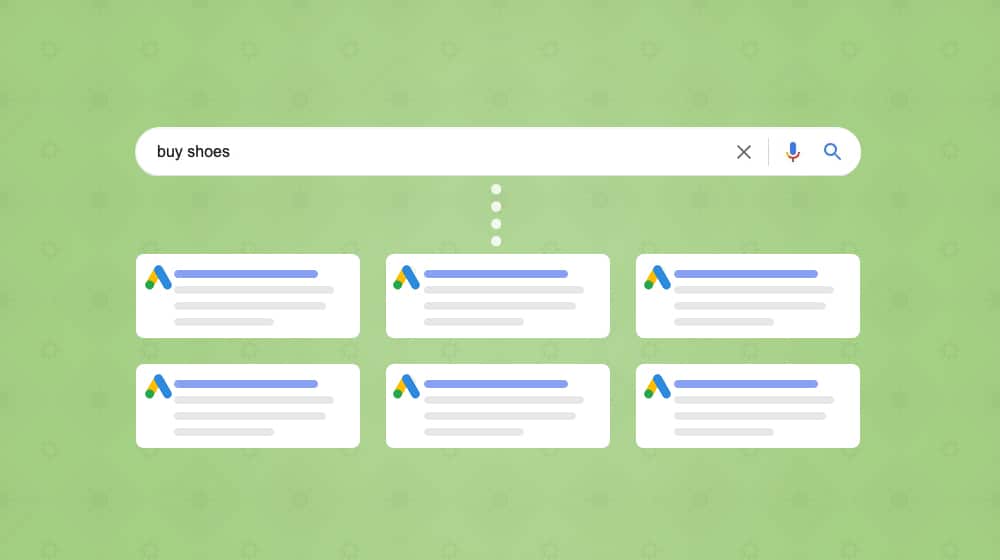
If you've been reading about Google Ads recently, you've probably come across the acronym SKAG. The SKAG strategy is a particular kind of ad group which you can use to narrowly focus on your highest-converting keywords. However, they can be risky, so it pays to learn what they are, how to use them, and what mistakes to avoid.
Let's go through some of the most common questions you may have.
What Are SKAGs?
They're a way of organizing keywords in ad groups that makes them laser-focused. This technique has benefits and drawbacks, which I'll explain later.
How Do SKAGs Differ from Normal Google Ads?
To understand SKAGs, you need to understand the usual structure of Google Ad campaigns. In Google Ads, you have a "tree structure" for your account, and at the top level, you have your account as a whole. With your account, you can create PPC campaigns to organize different, well, advertising campaigns.
Within each ad campaign, you can create ad groups. Typically, ad groups are used for ads that share some quality. They may all be centered around the same offer, the same root keyword, or focusing on the same landing page. It's free-form; you can group them however you like.
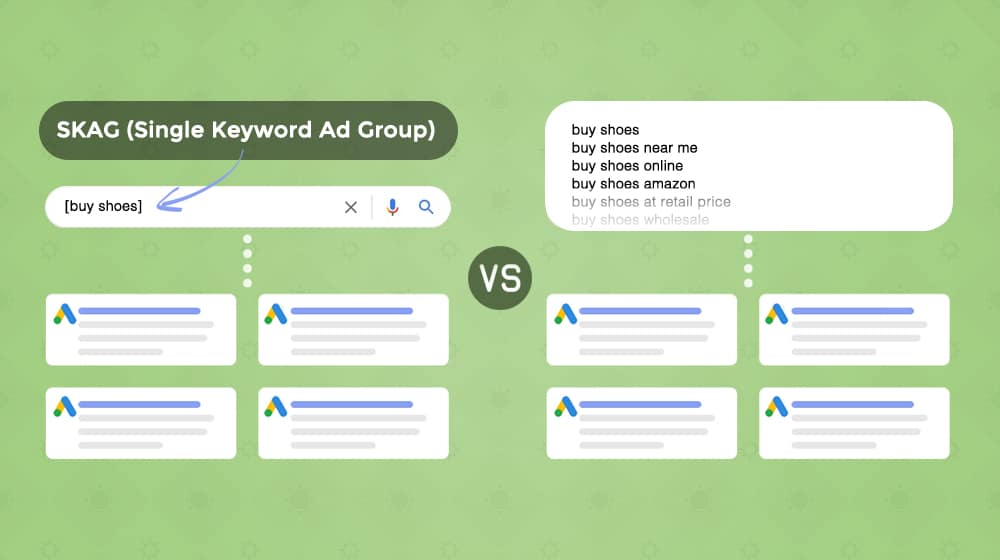
You have the ads and the keywords assigned to them, and then you have the single ad groups that contain those ads. Usually, these tend to vary and are grouped by theme or purpose.
Your typical Google Ad may choose dozens of synonyms and closely-related long-tail keywords to share your ad budget. Sometimes those keywords convert well, and other times they are a big waste of your ad budget, and you'll have to hunt them down and add them manually to a negative keywords list.
With SKAGs, you assign one core keyword to your ad group. The ads produced in that ad group are laser-targeted to that specific keyword.
How Do SKAGs Benefit Your Ads Account?
SKAGs have quite a few benefits for Google Ads.
1. First and foremost, the tight alignment between keyword and ad, and the resulting focus on ad copy, means that you'll have a higher average click-through rate for ads that work. A higher CTR means a higher ad quality score, which benefits your entire Google account. At the very least, you'll have lower ad CPC and possibly higher ad rankings, a higher average position, and higher quality scores.
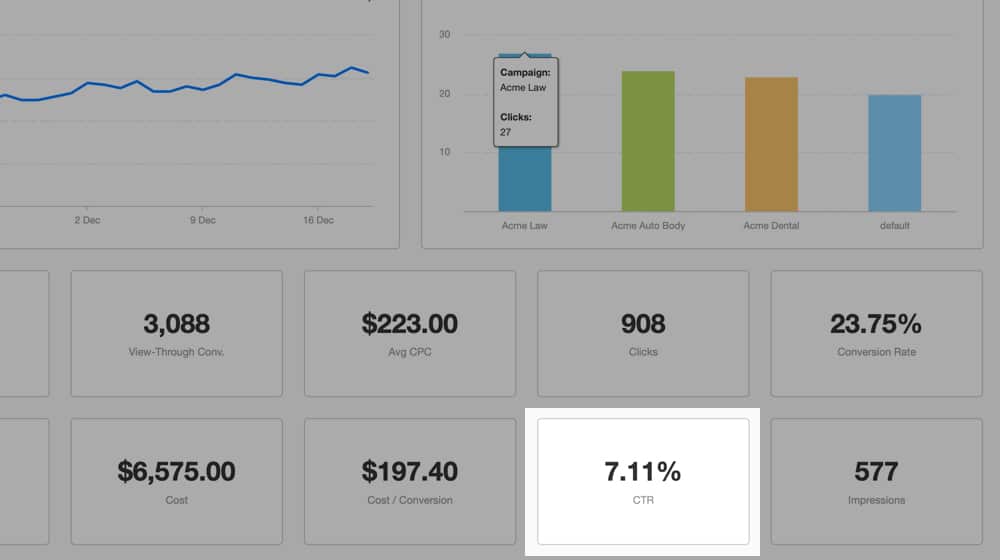
2. SKAGs are also simple to measure, assuming you account for the variability of data Google provides. Ads can run into issues because search results are never static, so ad testing can be tricky to perform consistently. But, with large enough sample sizes and careful consideration, it's not an insurmountable problem.
Part-and-parcel to the improved click-through rates is the highlighting Google does when search terms match. You may have noticed it; when you search for a keyword phrase on Google, that term will be bolded in results that use it explicitly. Non-matching keywords don't get highlighted, but since your SKAGs will be closely aligned with search queries, they get more highlighting.
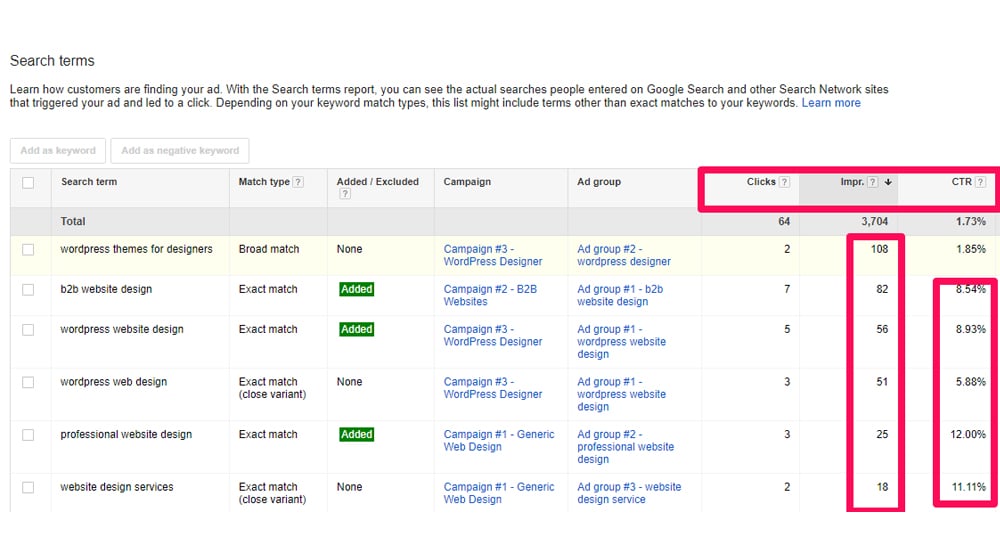
3. SKAGs also allow you to improve the alignment between your ads and your landing pages. This process further helps quality score, but it also benefits your conversion rates. In some cases, SKAG ads can deliver conversions at a much lower cost.
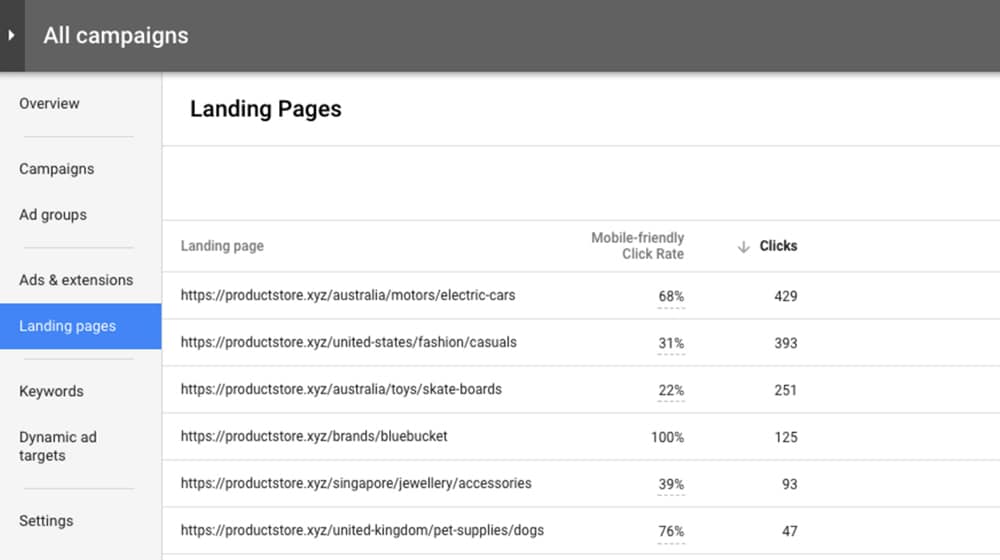
4. You will also likely be among the few people using SKAGs in your queries. Despite their popularity, they aren't super common. Moreover, Google doesn't recommend them through their usual tutorials, tips, and optimization systems, so anyone using automated ad generation isn't going to use SKAGs. You'll generally rank higher in the ad lists than those individuals.
5. Since SKAGs are so tightly targeted, you also gain focused knowledge of which keywords that searchers are actually using and can more closely align other parts of your digital marketing.
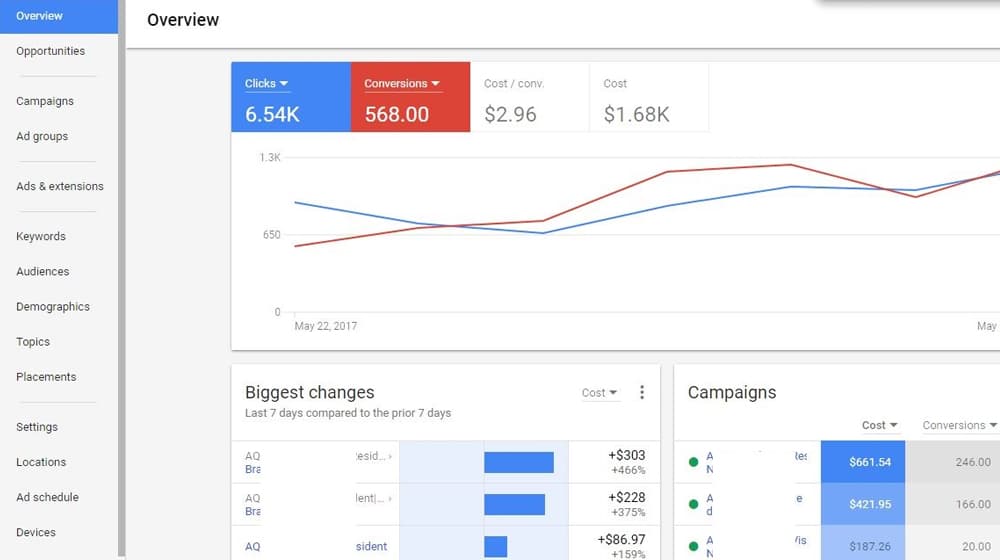
Do you see a trend? SKAGs are the precision mode for PPC marketers; they are incredibly narrow, highly targeted, and full-on hit or miss.
What Are the Risks of SKAGs in Google Ads?
SKAGs are not a perfect strategy; otherwise, everyone would use them for everything. You must be aware of a few substantial drawbacks if you want to use them.
1. Your data ends up spread out across a ton of different ad groups.
One of the most significant issues with SKAGs is that it divides your impression/click/search data across different ad groups instead of keeping it all in one clean, easy-to-read location. You have to set up your data tracking to account for this, and you need more extended, more extensive tests to get accurate data.
The data you do get is excellent, but it may take longer or be more expensive to get that data. On the other hand, a SKAG that doesn't work will very clearly not work and will be easy to kill off.
2. They may not work very well for new ad accounts.
Google recommends using 10-20 keywords per ad group, which is 9-19 more than a SKAG should be using. Usually, that's not a bad thing. Unfortunately, you don't have the data to use SKAGs effectively when you set them up for the first time - you have to give it time to collect click data.
The trick to SKAG usage is to have enough data to pull from to find those new keywords to use as a starting point. When your ad account is fresh, you don't have a starting point; you don't have a quality score or historical performance metrics. You have to spend some money here to test, and the results won't be ideal until you can use this data to refine specific ads.
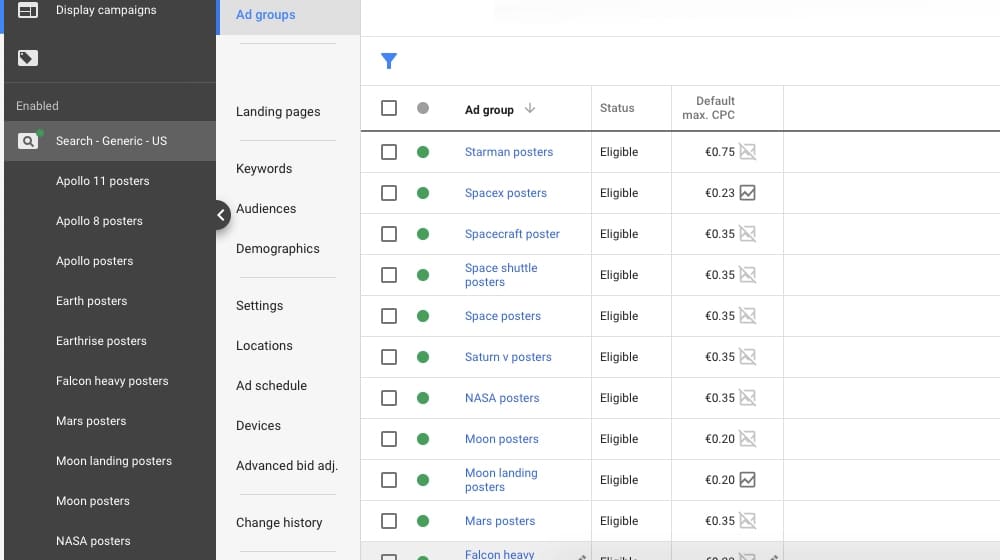
Now, if you guess right, you win the lotto. A good SKAG out the gate can get you incredible returns. But I don't call it a lotto for a reason. You have a low chance of guessing a good SKAG, and even if you stumble across a good one, other factors (landing page, offer, whims of the market) can mean it falls flat temporarily.
Your quality score tanks, and your predicted performance score based on past performance data is in the hole. Google sees that and your impressions drop quickly. If you choose wrong, you have a bunch invested into a narrow ad that doesn't work.
Ideally, you'll want to run multiple SKAG ads on products or pages that you know are top-performers and then carefully collect and review your ad data. Be patient with it for a while, but if your ad isn't performing or if they aren't converting as you had hoped, you should pause the ad and focus on better keywords.
3. You run the risk of over-optimizing.
In SEO, over-optimization generally means pushing SEO strategies to the detriment of usability, user experience, content quality, or accessibility. Google hates it when you try to exploit their systems, and they've spent an immense amount of time finding ways to detect and penalize anti-user behavior.
Well, they aren't as aggressive with it in paid advertising, which makes sense since people aggressively optimizing means people giving Google more money. But they still prefer if you don't get too aggressive with ad groups for individual exact-match keywords. SKAGs are single-keyword ad groups, but "single keyword" doesn't mean "one exact match keyword." You still use different match types in your SKAGs, but you have one core keyword around which the ad campaign is centered.
4. SKAGs take more time to manage and use.
One of the most significant drawbacks to SKAGs is that their narrow focus means it just takes longer to do anything with them. It takes longer to create them, longer to manage them, longer to analyze them, longer running to harvest meaningful data, everything. It can be a truly time-consuming process, especially when contrasted with Smart Campaigns.
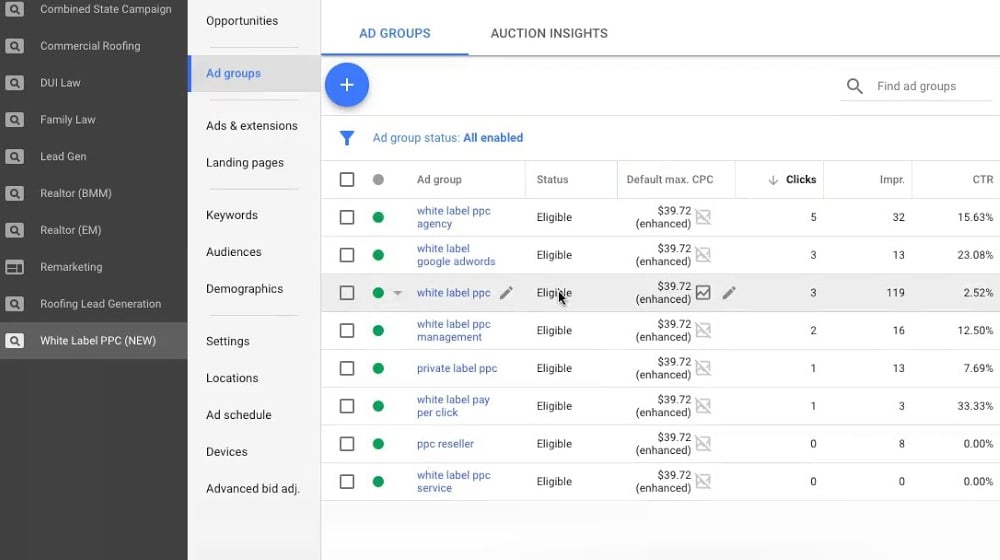
The extra time means extra efficiency, but it's time that you might have better ways to spend. It comes down to what else you could be doing with that time.
5. You can, potentially, create dead ads.
SKAGs use multiple match types to pull in different traffic variations for the same narrow keyword. Unfortunately, you can have conflicting match types on the same ad if you misconfigure them. This setup won't work because no query will fit both match types, and the ad won't function.
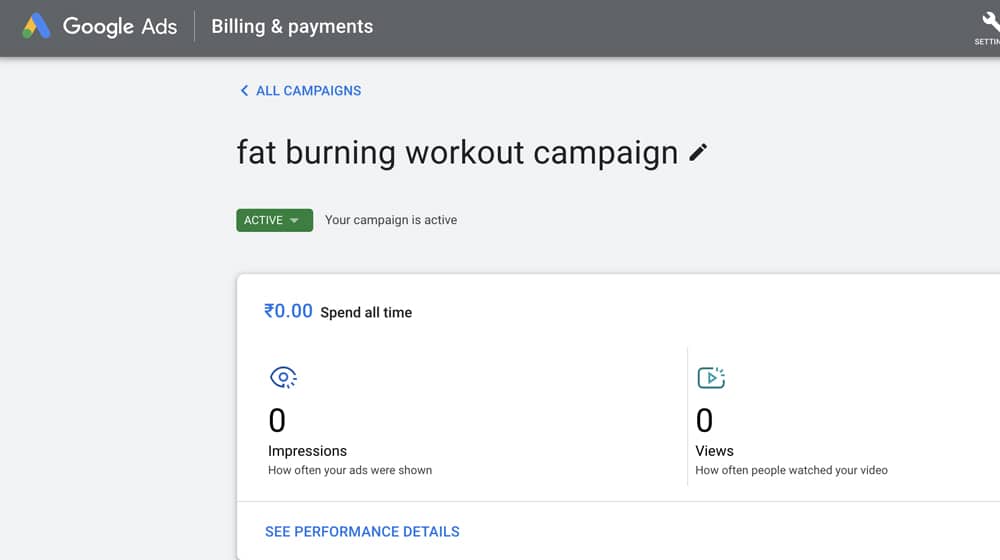
It's a mistake you must watch for, but it's easy to make (especially with larger account structures with hundreds of ads).
6. If you aren't careful, it can quickly spiral out of control.
How many keywords can you think of to target? 20? 50? 100? When you sit down and think about variations, spins on popular keywords, and keywords you want to test, you can see how the list can get very long. Even when you're focusing on the best-performing keywords, you can still end up running far too many different keywords.
The biggest issue here isn't the volume of keywords so much as the expense of running them. The more keywords you test, the more you'll have to increase your ad spend budget. Even if adding a single keyword only costs a few dollars daily, that can quickly add up across hundreds or thousands of keywords. Remember, to know whether or not a SKAG is working, it needs enough time and exposure, which means it needs enough budget.
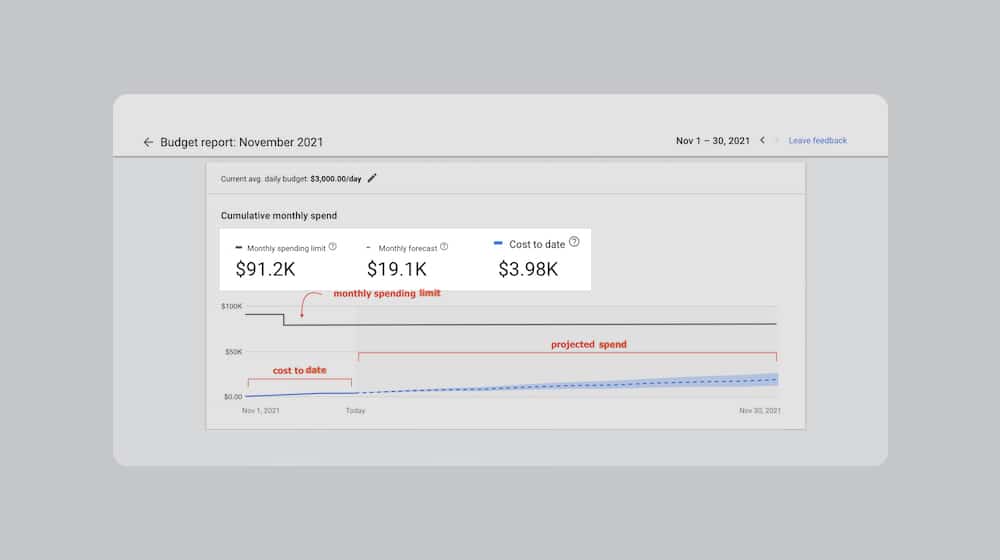
Oh, and one last problem: if you use SKAGs, you might be tempted to do what KlientBoost did and use phrases like "SKAGwagon," which, let's be real here, should probably never have been written, let alone repeated by me with a link to their post.
7. Google may still apply broad match modified or phrase match keywords.
If you were under the impression that your ad was targeting a single keyword, and it's actually targeting variants that aren't performing and aren't present in your negative keywords list, you could end up with non-performing ads. You can read more about the change here.
What's the #1 Tip to Do SKAGs Right?
One tip you can leverage to do SKAGs "right" is using the Pareto Principle.
The key, then, is to use a refinement process.
Here's how:
- Run generalized ads with larger keyword groups. This strategy gives you a wealth of data and uses Google's tools to generate keyword reports.
- Identify the keywords that turn into the most conversions with the best conversion rates.
- Create SKAGs that target those specific keywords, and use all your typical conversion rate optimization techniques to improve their performance.
Throughout your testing, you also need to refine things like your unique selling point, your offer, and your ad copy. Even refining your landing page can be a good idea. Using different, narrow landing pages for different SKAGs can also be helpful.
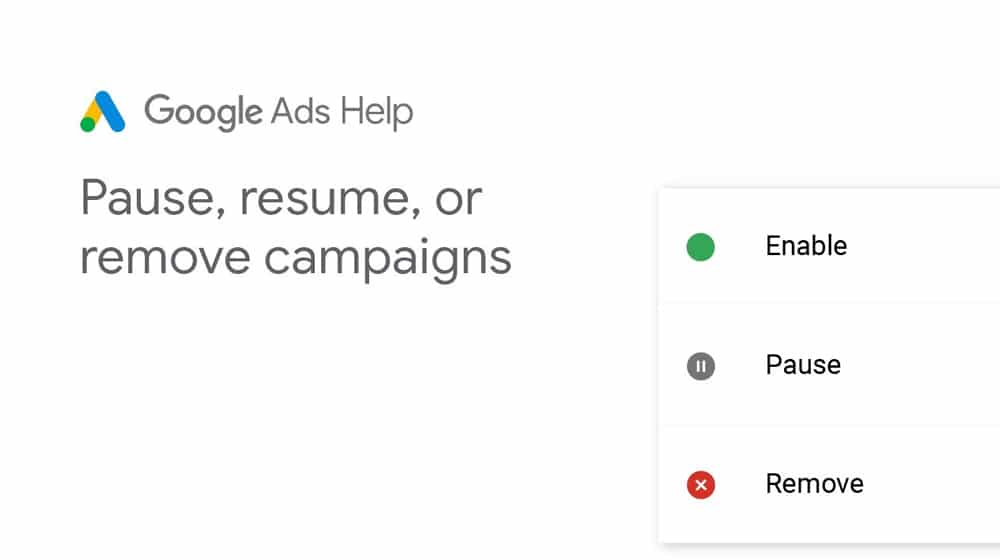
Again, all of this will take time. The legwork still needs to be done. Even using the 80/20 rule to focus your efforts can only save you so much.
You can also consider Keyword Tapering. Keyword Tapering is a strategy expounded upon in that KlientBoost post above. You start your ads with broad match keywords and leverage the information Google gives you via automation to see which variations on that keyword are the best. You narrow the circle progressively, cutting out the worst keywords and leaving the high-performers until you narrow it down. Then you either have a SKAG or a good list of keywords to use for SKAGs. It's like a Battle Royale, but for keywords.
Can You Make SKAGs Easier?
One key element of SKAGs is that they're all narrow and individual but primarily use the same structure. That means simple automation can go a long way toward making your ad group levels more manageable. Google's AdWords Editor is a tool they offer that can help you manage and bulk-edit SKAGs.
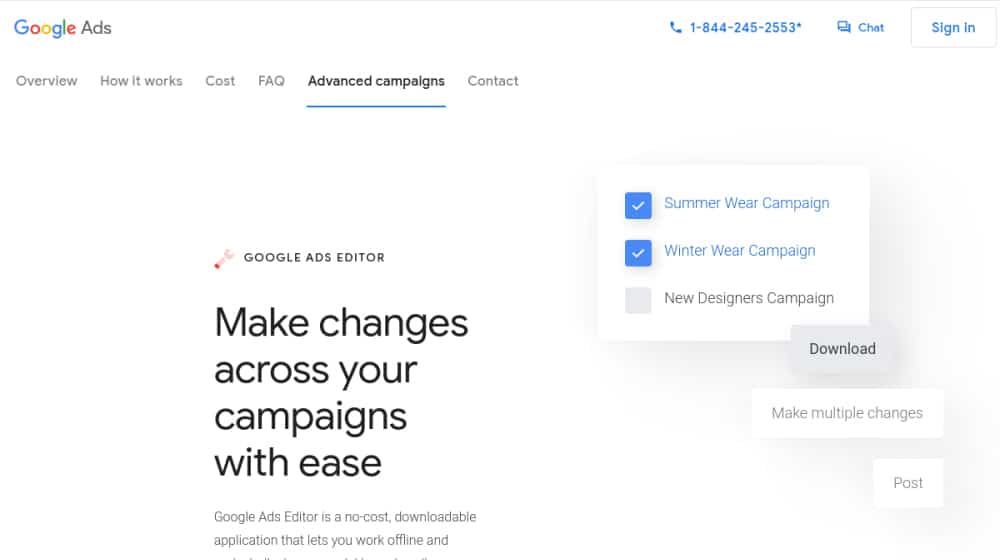
You might also consider some of the PPC ads managers out there. Many of them have various tools to help you manage bulk ads and ad groups, but you'll want to explore them to see which ones fit your budget and needs.
I don't have a specific recommendation here; it's best to find software that works for you.
Are SKAGs Limited to Google Ads?
While this post focuses on your Google Ads account, the truth is that SKAGs can be used anywhere. They work on Facebook and other social media networks and even display ads. As long as you can narrowly target your ads, you can run SKAGs in the ad system, no matter what that ad system is.
I'd love to discuss some more advanced advertising strategies with you folks:
Have you tried to use SKAGs before? Do you have advice or horror stories? If so, let me know in the comments.




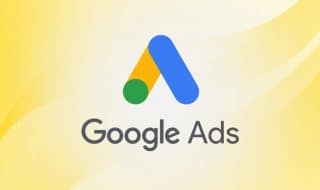
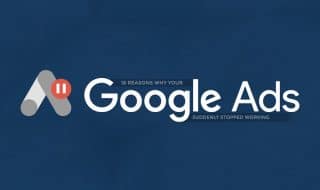




August 12, 2022
I never tried SKAGs before and this was very helpful to know more about them.
August 22, 2022
Hey Rakesh!
It's an advanced technique, I highly recommend trying them out! I'm glad my guide was useful to you.